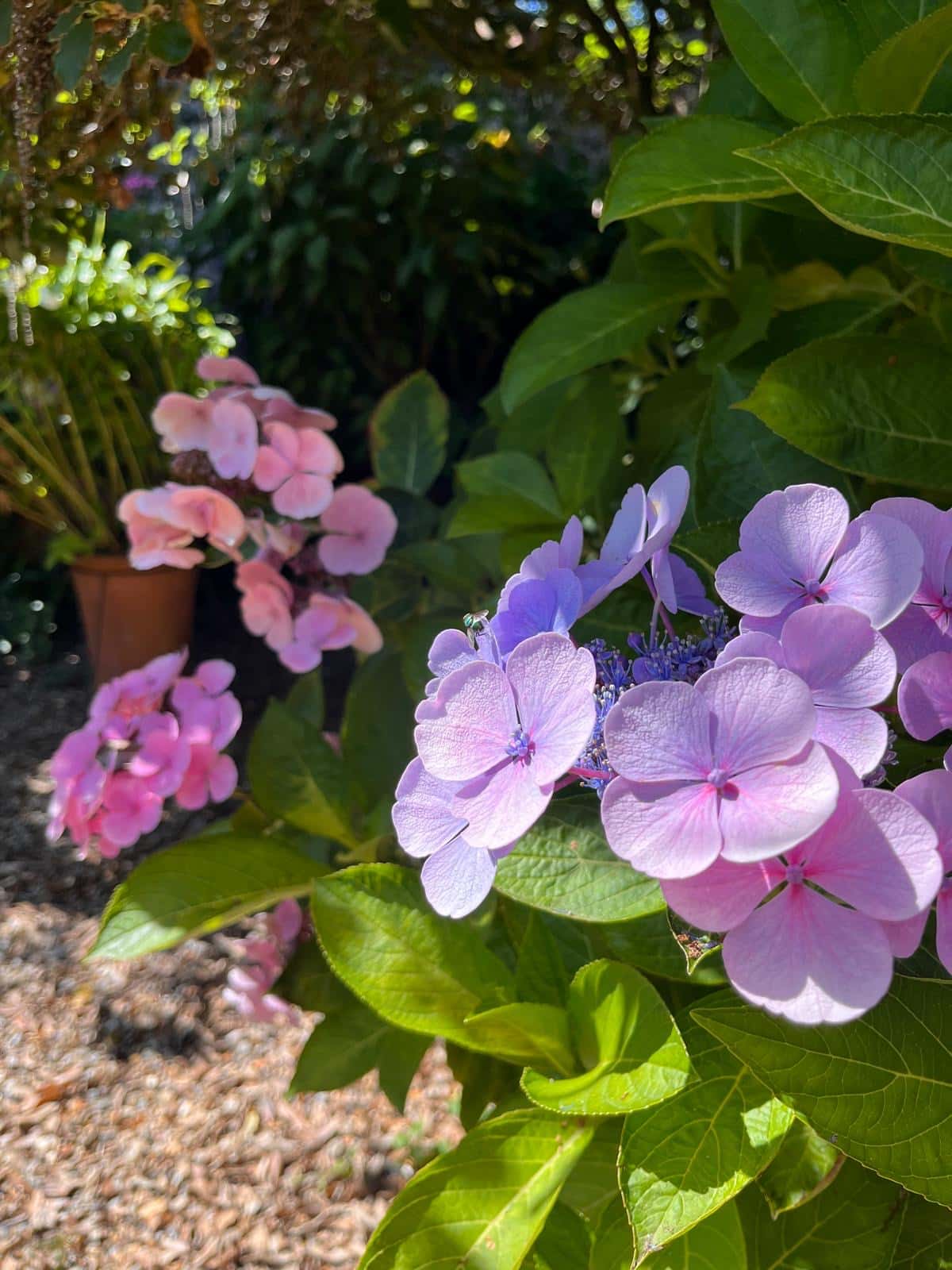
How can you help Wildlife & the ecosytem this spring?
When Spring arrives, our home gardens begin to come alive again as the bleak months of winter end, temperatures rise and the hours of daylight
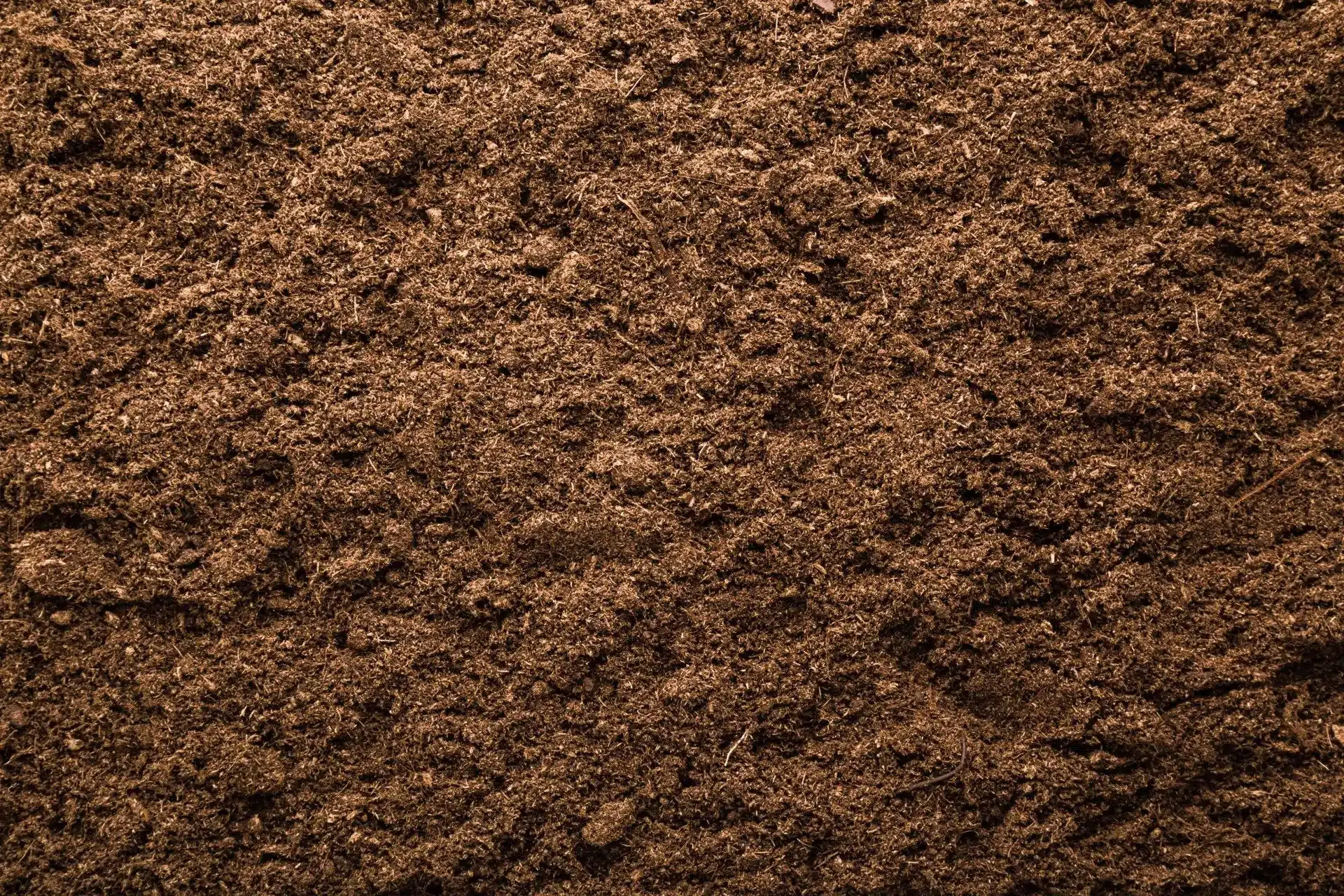
With the news that the government is set to ban the sale of peat products to gardeners by 2024, there has been an increase in people searching online to find out what peat is and what kind of products are peat-free. And since we’re the first UK company to produce natural fertilisers through a renewable energy process, we thought we’re in the perfect position to answer some of the top questions you have about peat.
Peat – or peat moss – is a natural resource that is found in bogs. It’s the surface layer of soil and is made of partly decomposed organic matter – mainly plant material. Peat bogs are a type of wetland that have a high acid content, are waterlogged and have a nutrient and oxygen deficiency. You’ll find plants like grass, mosses and trees in bogs, and the acidity stops these types of plants from fully decaying. Over millions of years, all of this partly-decomposed matter builds up, turning into carbon, and becomes peat.
When peat is harvested, the bog is drained, which releases the carbon that it’s stored for years into the atmosphere. Large tractors scrape the peat from the surface of the bogs and it’s then compacted into bricks. Because it’s been disturbed, the remaining peat left in the bog continues to release carbon dioxide and methane into the atmosphere.
The harvested peat is then packaged up and used as fuel or in compost. When it’s spread on a garden, the carbon in the peat turns into carbon dioxide and adds to greenhouse gas levels. Since commercial businesses use peat in the tonnes for a range of uses, it’s a significant problem.
Peat bogs are found across the world in 180 countries, but we’ll focus on the peatlands that we have in the UK. We have three main types of peatlands here: blanket bog, raised bog and fenland. The UK has 14% of the world’s blanket bog, and 60% of our peatland is in Scotland.
In peat bogs you’ll find a rich variety of wildlife. They’re home to rare wading birds, carnivorous plants and lots of insects. Some of these creatures only live in peatlands, so by harvesting peat we’re destroying their habitat and contributing to their extinction.
The UK is banning peat sales to gardeners from 2024. Peat bogs are important to our planet as they act as carbon sinks, locking carbon away, and is a great habitat for wildlife. Peat bogs are also good for water management and they help to preserve vegetation and artefacts that will be useful to archaeologists in years to come.
Peat is so vital to helping reduce and even reverse climate change, but for as long as it is harvested for fuel and compost it will cause damage to our environment. It needs to be wet and boggy to store carbon and to perform the other critical functions, but we’ve been cultivating and draining peatlands for centuries. Dry peat can easily get washed away and is also a fire hazard. Plus, dry peat emits carbon dioxide and is one of the biggest sources of greenhouse gases.
When peat is left in its natural state, it can store more carbon than forests. The UK’s peatlands store over three billion tonnes of carbon – that’s the same amount as all the forests in the UK, France and Germany combined. It’s our biggest store of carbon, storing the equivalent of 20 years of all UK carbon dioxide emissions. In addition to this, peat bogs slow the flow of rainfall which helps to prevent flooding, and they can also hold up to 20 times its own weight in water.
Once you know how crucial peat is to helping the planet, it’s obvious that we need to stop using peat in our gardens. But lots of gardeners are worried that they won’t be able to get the same results from their flowers and plants if they’re not using peat products.
It takes 100 years to form just 10cm of peat, and Defra suggests that we’d have to reduce our peat use to 2% of the current level to balance what we take out. It’s not a viable renewable resource, but it comes cheap and it offers great results in gardening due to adding lots of organic matter to the soil. But today, there are plenty of peat-free composts available that offer great results without harming the environment. And one of those is PlantGrow.
All of PlantGrow’s products are organic and made using a renewable energy process, so you’re not only helping the environment by keeping peat in bogs, but also by choosing a product that doesn’t emit greenhouse gases during manufacture. The base ingredients include cereal and grass crops that have gone through the process of anaerobic digestion and have all the essential soil microbes that plants, flowers and trees need to thrive.
PlantGrow is made in the beautiful Norfolk countryside, unlike some other peat alternatives like coir which is imported from places like India and Sri Lanka. So whether it’s a compost, fertiliser or tomato food you need, choosing PlantGrow is the eco-friendly option.
At the moment, there aren’t many other peat-free options that are made entirely in the UK, and garden centres will need to find alternatives to peat to supply to their customers. We’re working with more and more businesses to help them offer their customers a high-quality alternative to peat that gives fantastic results without harming the environment.
The Lancashire Wildlife Trust explains why peatlands are so important:

When Spring arrives, our home gardens begin to come alive again as the bleak months of winter end, temperatures rise and the hours of daylight
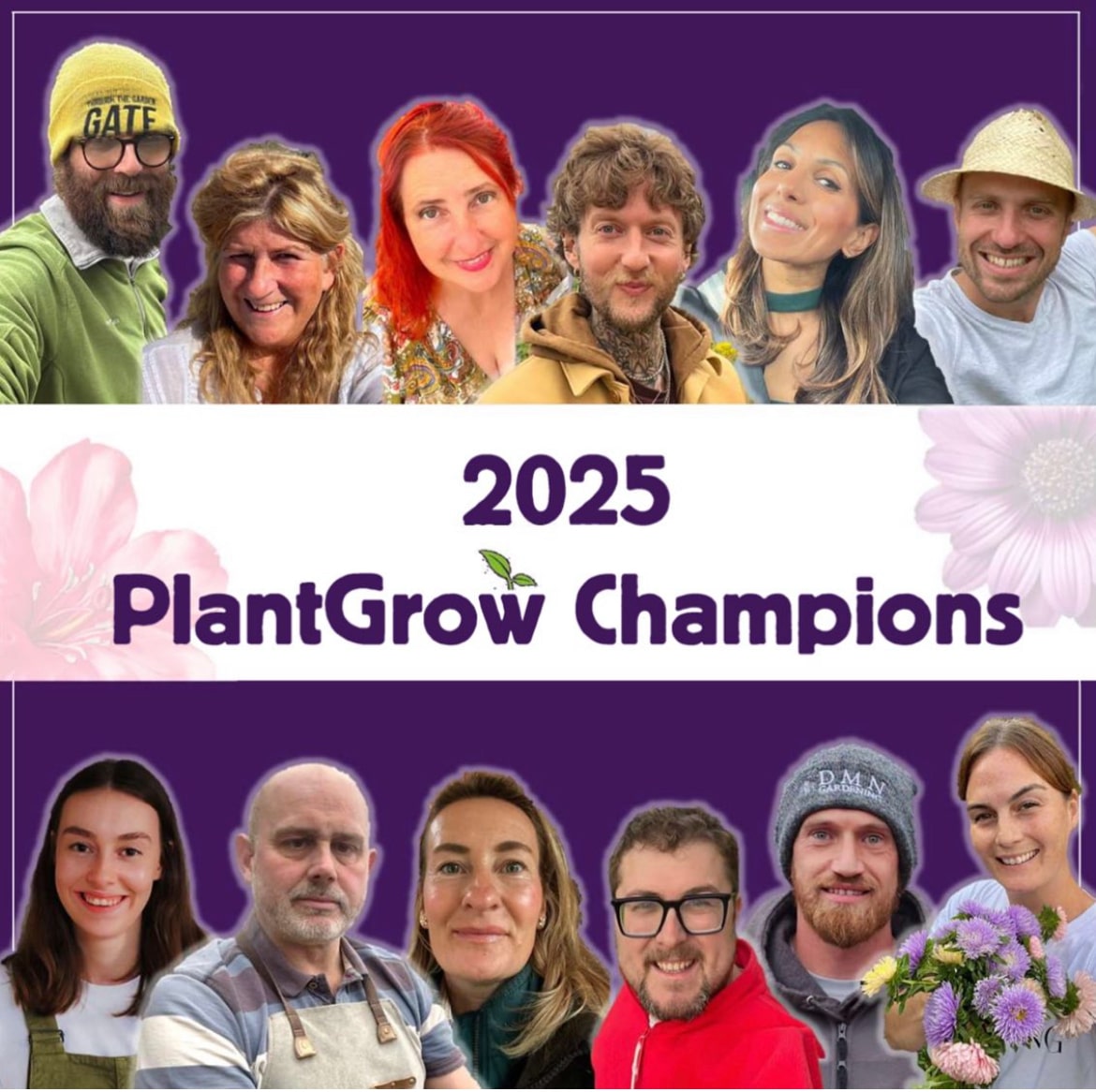
Our new Champions will be flying the flag for PlantGrow this year and all things natural. We have selected a varied group of individuals from
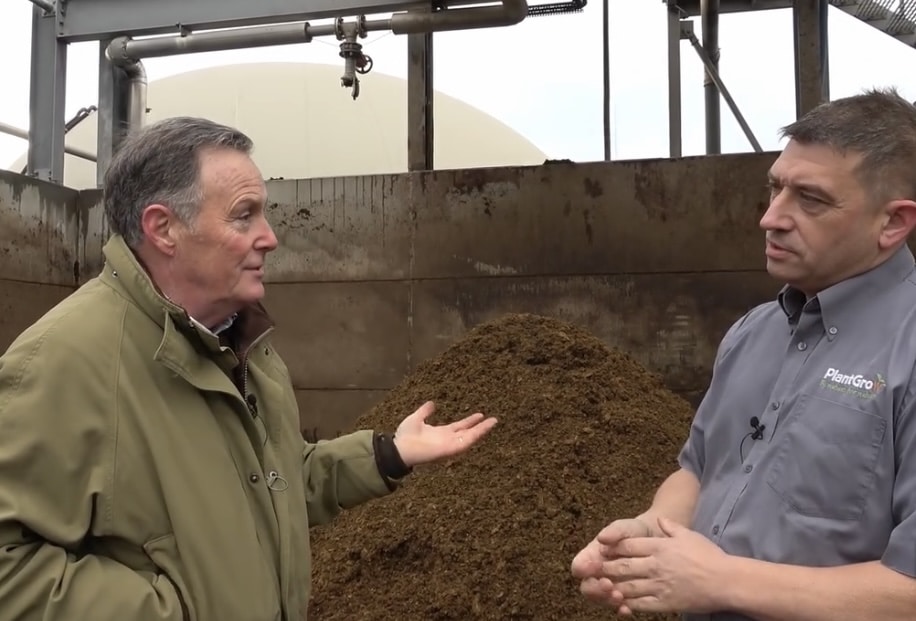
2025 is promising to be a busy year once again for us at PlantGrow with new brand ambassadors and a new list of ‘Champions’ who
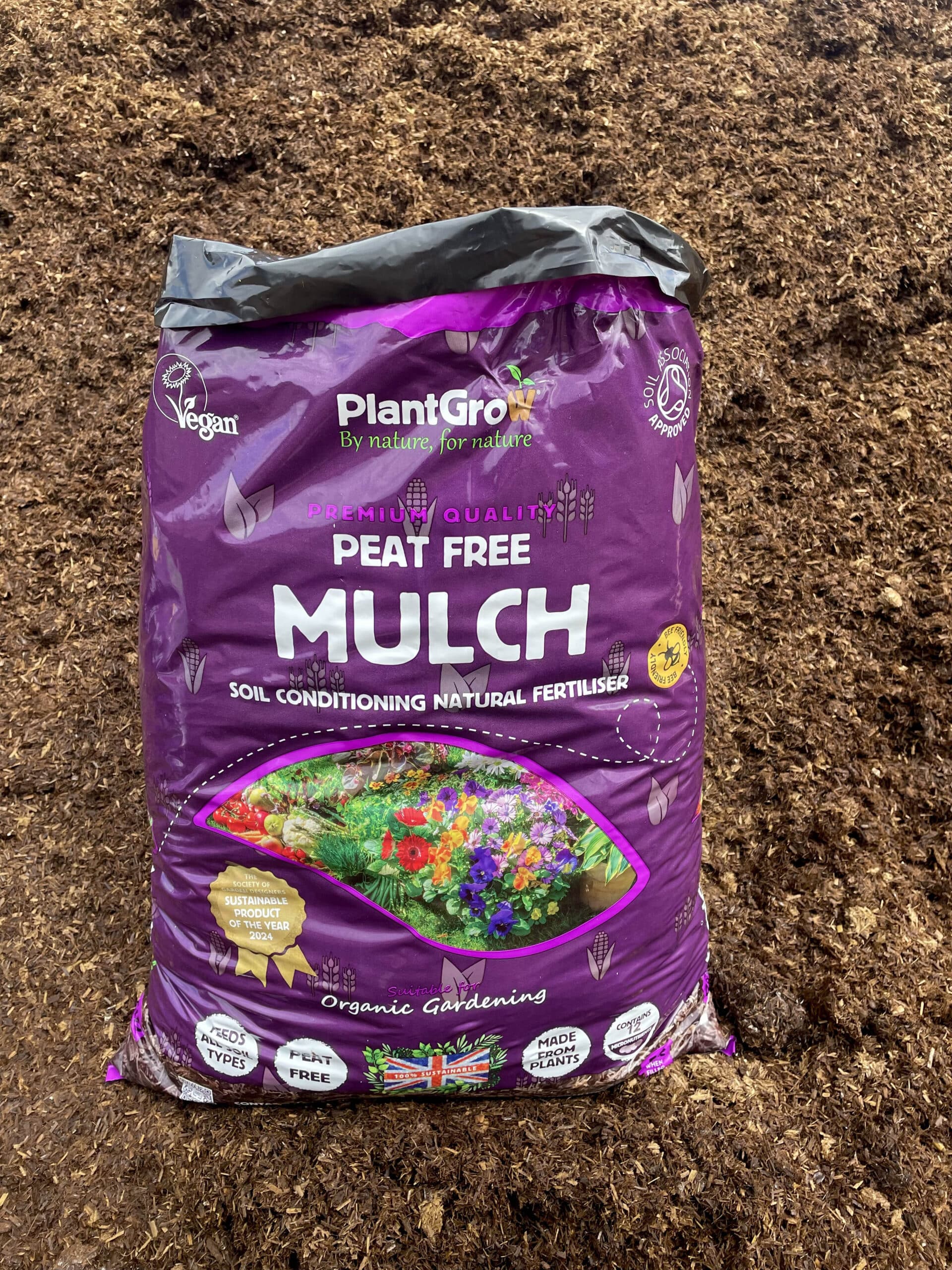
November 2024 Award-winning & market leading PlantGrow Organic Mulch will soon be available in 50-litre size bags for garden centres. Their signature natural fertiliser product
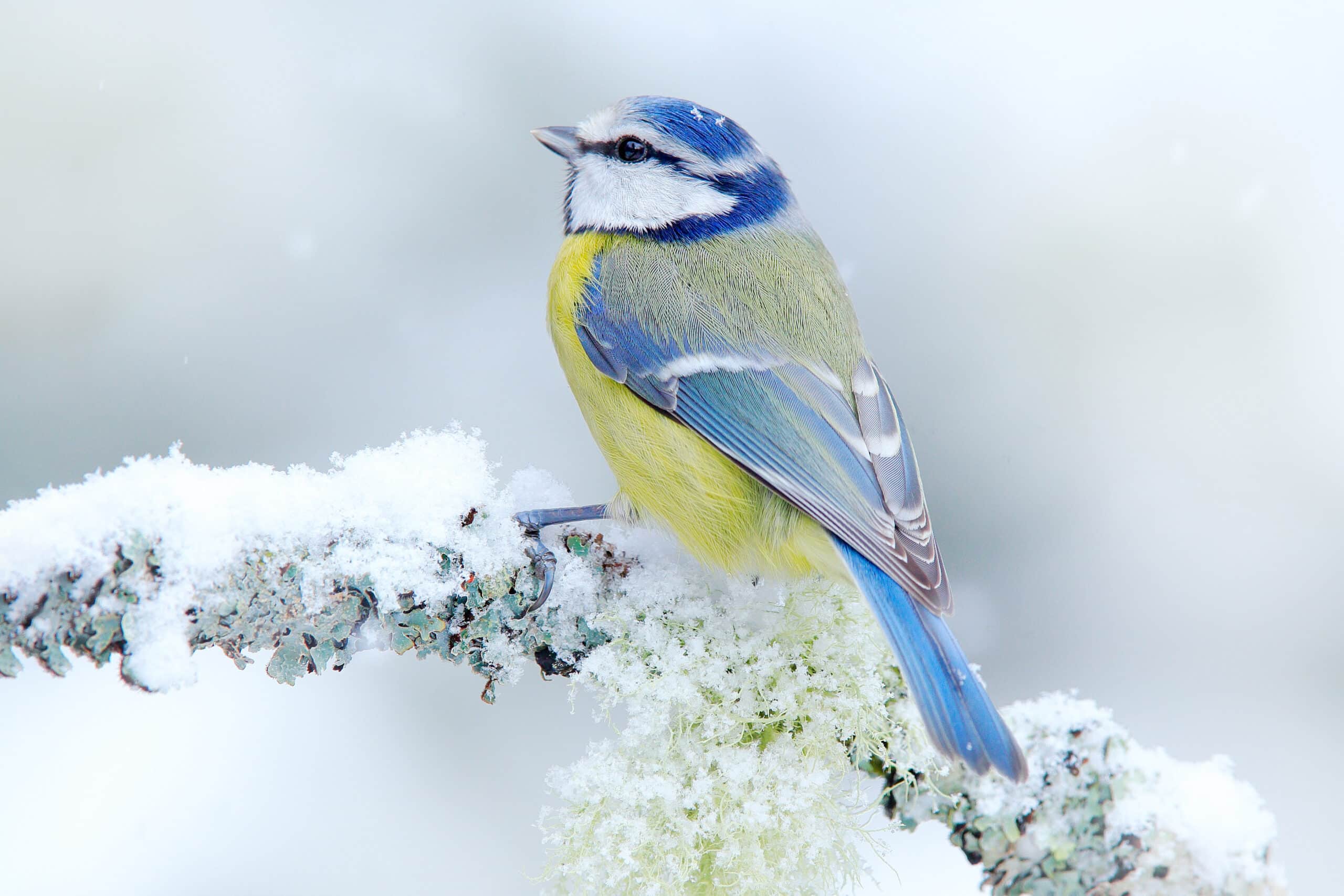
Late Autumn and the onset of Winter will trigger a notable change to the abundance, behaviour and physical state of life within our gardens. With
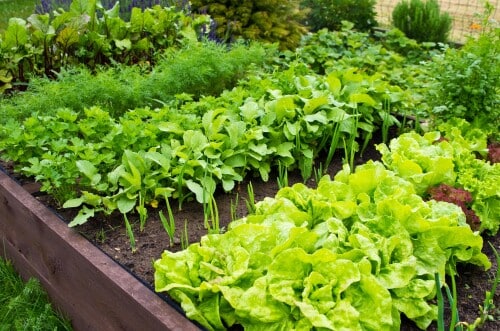
Why do you need to add PlantGrow mulch this Autumn? Mulching or topdressing is needed for a number of reasons as it is beneficial for
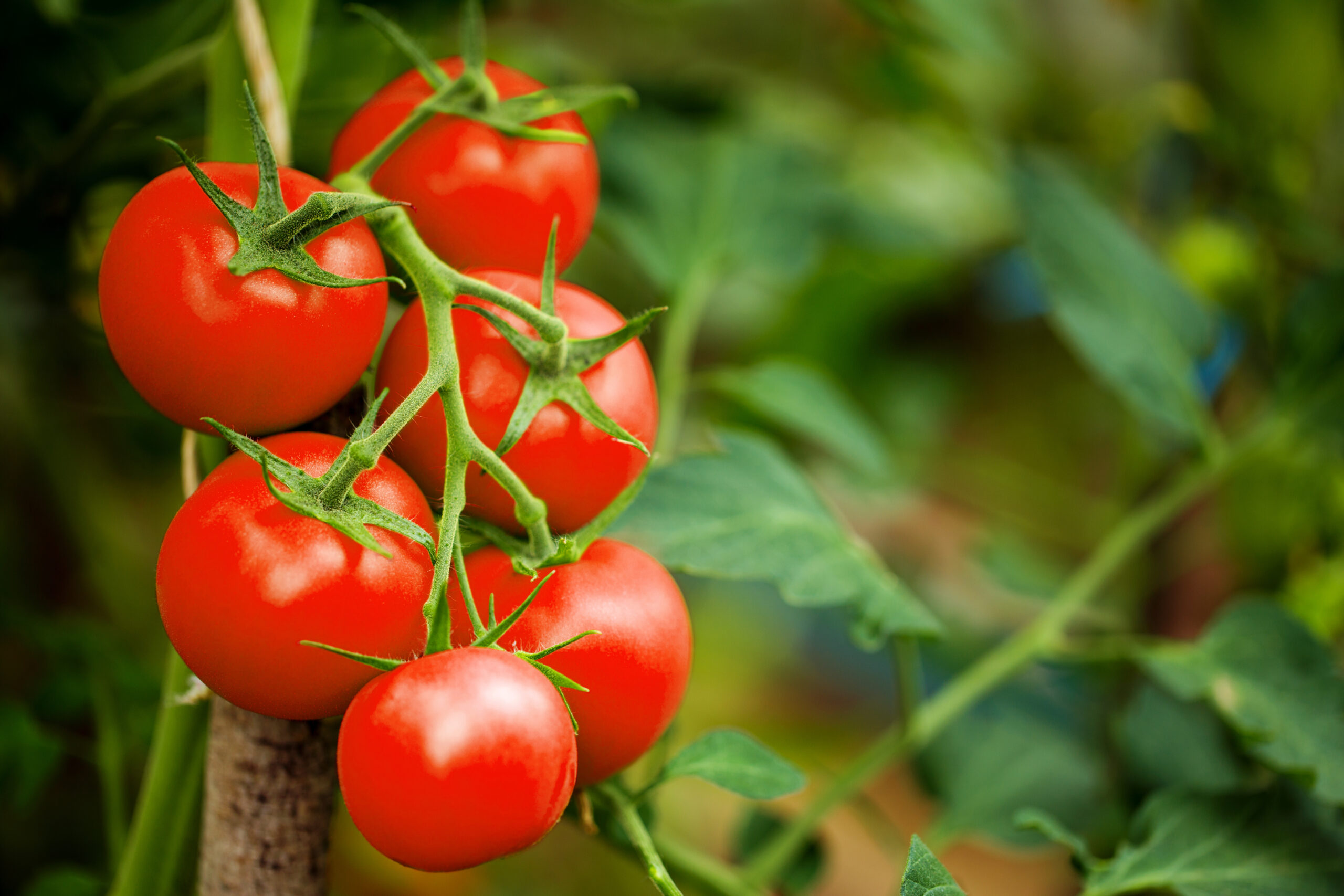
Q: Why should I use fertiliser on my fruits and vegetables? To help you get the most from your garden. Fertilisers supply your plants with

Meet our 2024 PlantGrow Champions PlantGrow Champions are a select group of Instagram growers who use PlantGrow in their gardens. Each one was individually chosen for
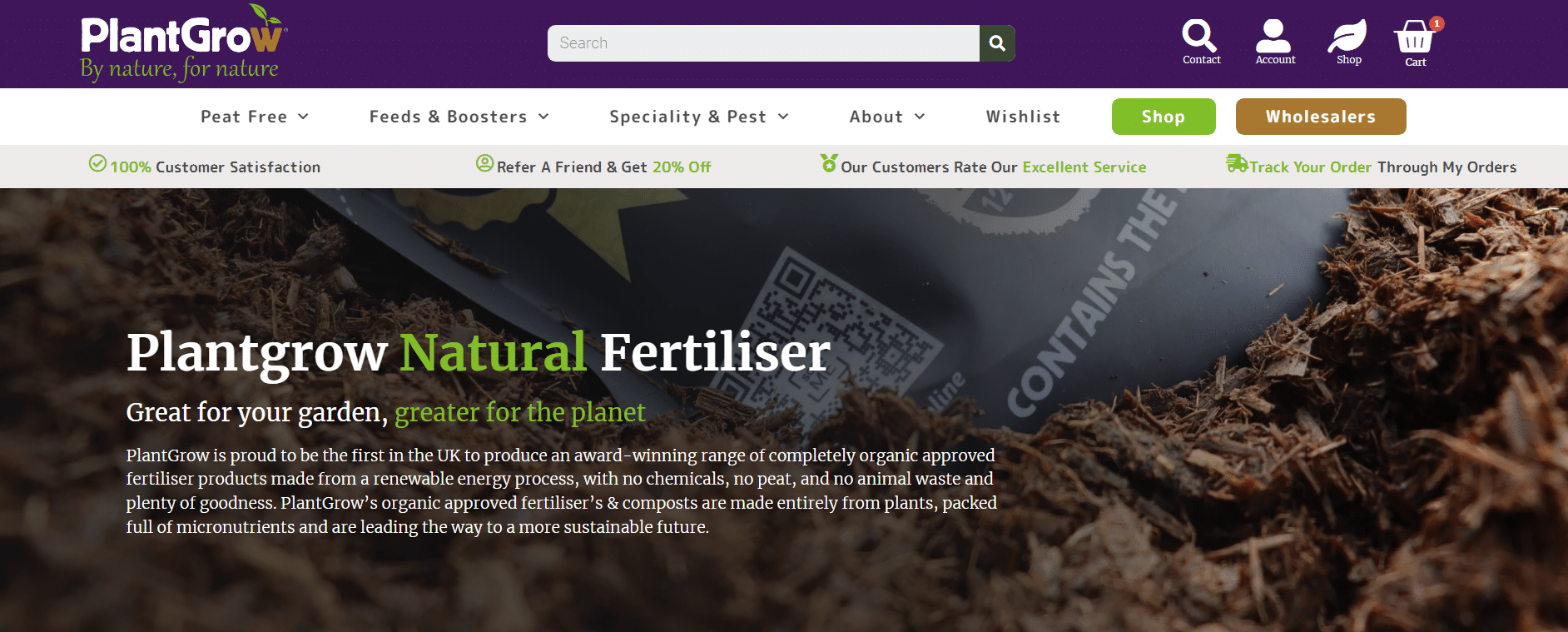
PlantGrow Launches All-New Website Back in 2016, nobody really knew about PlantGrow. Who’d have thought that in 2023 most gardeners in the UK would know
Find us: Cakes Hill Barn, Ellingham Road, Attleborough, Norfolk, NR17 1AE
| Cookie | Duration | Description |
|---|---|---|
| _savt | 3 years | This cookie is set by Square for payment processing. |
| cookielawinfo-checkbox-advertisement | 1 year | Set by the GDPR Cookie Consent plugin, this cookie is used to record the user consent for the cookies in the "Advertisement" category . |
| cookielawinfo-checkbox-analytics | 11 months | This cookie is set by GDPR Cookie Consent plugin. The cookie is used to store the user consent for the cookies in the category "Analytics". |
| cookielawinfo-checkbox-functional | 11 months | The cookie is set by GDPR cookie consent to record the user consent for the cookies in the category "Functional". |
| cookielawinfo-checkbox-necessary | 11 months | This cookie is set by GDPR Cookie Consent plugin. The cookies is used to store the user consent for the cookies in the category "Necessary". |
| cookielawinfo-checkbox-others | 11 months | This cookie is set by GDPR Cookie Consent plugin. The cookie is used to store the user consent for the cookies in the category "Other. |
| cookielawinfo-checkbox-performance | 11 months | This cookie is set by GDPR Cookie Consent plugin. The cookie is used to store the user consent for the cookies in the category "Performance". |
| CookieLawInfoConsent | 1 year | Records the default button state of the corresponding category & the status of CCPA. It works only in coordination with the primary cookie. |
| elementor | never | This cookie is used by the website's WordPress theme. It allows the website owner to implement or change the website's content in real-time. |
| viewed_cookie_policy | 11 months | The cookie is set by the GDPR Cookie Consent plugin and is used to store whether or not user has consented to the use of cookies. It does not store any personal data. |
| Cookie | Duration | Description |
|---|---|---|
| _GRECAPTCHA | Session | Spam prevention |
| _hjSession_* | 30 Minutes | A cookie that holds the current session data. This ensures that subsequent requests within the session window will be attributed to the same Hotjar session. |
| Woocommerce_cart_hash | 1 Day | To store items in cart |
| Woocommerce_items_in_cart | Session | Store items in cart. |
| Wordpress_logged_in_ | Session | WordPress |
| Wordpress_sec_* | 15 Days | To provide protection against hackers, store account details. |
| Wp_woocommerce_session_* | Session | Store performed actions. |
| Cookie | Duration | Description |
|---|---|---|
| _hjAbsoluteSessionInProgress | 30 Minutes | Hotjar sets this cookie to detect the first pageview session of a user. This is a True/False flag set by the cookie. |
| _hjAbsoluteSessionInProgress | 30 Minutes | Hotjar sets this cookie to detect the first pageview session of a user. This is a True/False flag set by the cookie. |
| _hjSessionUser_* | 1 Year | Hotjar cookie that is set when a user first lands on a page with the Hotjar script. It is used to persist the Hotjar User ID, unique to that site on the browser. This ensures that behavior in subsequent visits to the same site will be attributed to the same user ID |
| CONSENT | 2 years | YouTube sets this cookie via embedded youtube-videos and registers anonymous statistical data. |
| Cookie | Duration | Description |
|---|---|---|
| VISITOR_INFO1_LIVE | 5 months 27 days | A cookie set by YouTube to measure bandwidth that determines whether the user gets the new or old player interface. |
| YSC | session | YSC cookie is set by Youtube and is used to track the views of embedded videos on Youtube pages. |
| yt-remote-connected-devices | never | YouTube sets this cookie to store the video preferences of the user using embedded YouTube video. |
| yt-remote-device-id | never | YouTube sets this cookie to store the video preferences of the user using embedded YouTube video. |
| Cookie | Duration | Description |
|---|---|---|
| cookielawinfo-checkbox-tracking | 1 year | No description |
Parcel deliveries
We aim to deliver all parcels within 2-4 working days from dispatch, order before 12:00pm for same day dispatch.
Pallet deliveries
We aim to deliver all pallets within 2-5 working days from dispatch, order before 12:00pm for same day dispatch.
If you require further information regarding your delivery, please email daniel@plantgrow.co.uk
